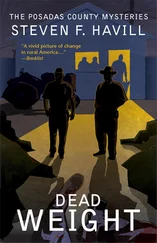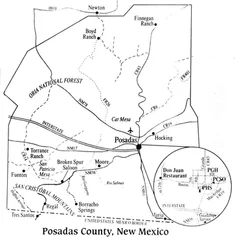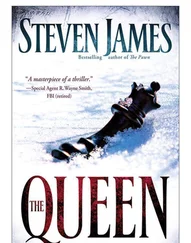Steven Dubner - Freakonomics
Здесь есть возможность читать онлайн «Steven Dubner - Freakonomics» весь текст электронной книги совершенно бесплатно (целиком полную версию без сокращений). В некоторых случаях можно слушать аудио, скачать через торрент в формате fb2 и присутствует краткое содержание. Жанр: Старинная литература, на русском языке. Описание произведения, (предисловие) а так же отзывы посетителей доступны на портале библиотеки ЛибКат.
- Название:Freakonomics
- Автор:
- Жанр:
- Год:неизвестен
- ISBN:нет данных
- Рейтинг книги:3 / 5. Голосов: 1
-
Избранное:Добавить в избранное
- Отзывы:
-
Ваша оценка:
- 60
- 1
- 2
- 3
- 4
- 5
Freakonomics: краткое содержание, описание и аннотация
Предлагаем к чтению аннотацию, описание, краткое содержание или предисловие (зависит от того, что написал сам автор книги «Freakonomics»). Если вы не нашли необходимую информацию о книге — напишите в комментариях, мы постараемся отыскать её.
Freakonomics — читать онлайн бесплатно полную книгу (весь текст) целиком
Ниже представлен текст книги, разбитый по страницам. Система сохранения места последней прочитанной страницы, позволяет с удобством читать онлайн бесплатно книгу «Freakonomics», без необходимости каждый раз заново искать на чём Вы остановились. Поставьте закладку, и сможете в любой момент перейти на страницу, на которой закончили чтение.
Интервал:
Закладка:
Each year he drops off about seven thousand boxes and loses, on average, just one to theft. This is an intriguing statistic: the same people who routinely steal more than 10 percent of his bagels almost never stoop to stealing his money box—a tribute to the nuanced social calculus of theft. From Feldman’s perspective, an office worker who eats a bagel without paying is committing a crime; the office worker probably doesn’t think so. This distinction probably has less to do with the admittedly small amount of money involved (Feldman’s bagels cost one dollar each, cream cheese included) than with the context of the
“crime.” The same office worker who fails to pay for his bagel might also help himself to a long slurp of soda while filling a glass in a self-serve restaurant, but he is very unlikely to leave the restaurant without paying.
So what do the bagel data have to say? In recent years, there have been two noteworthy trends in the overall payment rate. The first was a long, slow decline that began in 1992. By the summer of 2001, the overall rate had slipped to about 87 percent. But immediately after September 11 of that year, the rate spiked a full 2 percent and hasn’t slipped much since. (If a 2 percent gain in payment doesn’t sound like much, think of it this way: the nonpayment rate fell from 13 to 11
percent, which amounts to a 15 percent decline in theft.) Because many of Feldman’s customers are affiliated with national security, there may have been a patriotic element to this 9/11 Effect. Or it may have represented a more general surge in empathy.
The data also show that smaller offices are more honest than big ones. An office with a few dozen employees generally outpays by 3 to 5 percent an office with a few hundred employees. This may seem counterintuitive. In a bigger office, a bigger crowd is bound to convene around the bagel table, providing more witnesses to make sure you drop your money in the box. But in the big-office/small-office comparison, bagel crime seems to mirror street crime. There is far less street crime per capita in rural areas than in cities, in large part because a rural criminal is more likely to be known (and therefore caught). Also, a smaller community tends to exert greater social incentives against crime, the main one being shame.
The bagel data also reflect how much personal mood seems to affect honesty.
Weather, for instance, is a major factor. Unseasonably pleasant weather inspires people to pay at a higher rate. Unseasonably cold weather, meanwhile, makes people cheat prolifically; so do heavy rain and wind. Worst are the holidays. The week of Christmas produces a 2 percent drop in payment rates—again, a 15
percent increase in theft, an effect on the same magnitude, in reverse, as that of 9/11. Thanksgiving is nearly as bad; the week of Valentine’s Day is also lousy, as is the week straddling April 15. There are, however, a few good holidays: the weeks that include the Fourth of July, Labor Day, and Columbus Day. The difference in the two sets of holidays? The low-cheating holidays represent little more than an extra day off from work. The high-cheating holidays are fraught with miscellaneous anxieties and the high expectations of loved ones.
Feldman has also reached some of his own conclusions about honesty, based more on his experience than the data. He has come to believe that morale is a big factor—that an office is more honest when the employees like their boss and their work. He also believes that employees further up the corporate ladder cheat more than those down below. He got this idea after delivering for years to one company spread out over three floors—an executive floor on top and two lower floors with sales, service, and administrative employees. (Feldman wondered if perhaps the executives cheated out of an overdeveloped sense of entitlement.
What he didn’t consider is that perhaps cheating was how they got to be executives.)
If morality represents the way we would like the world to work and economics represents how it actually does work, then the story of Feldman’s bagel business lies at the very intersection of morality and economics. Yes, a lot of people steal from him, but the vast majority, even though no one is watching over them, do not. This outcome may surprise some people—including Feldman’s economist friends, who counseled him twenty years ago that his honor-system scheme would never work. But it would not have surprised Adam Smith. In fact, the theme of Smith’s first book, The Theory of Moral Sentiments, was the innate honesty of mankind. “How selfish soever man may be supposed,” Smith wrote,
“there are evidently some principles in his nature, which interest him in the fortune of others, and render their happiness necessary to him, though he derives nothing from it, except the pleasure of seeing it.”
There is a tale, “The Ring of Gyges,” that Feldman sometimes tells his economist friends. It comes from Plato’s Republic. A student named Glaucon offered the story in response to a lesson by Socrates—who, like Adam Smith, argued that people are generally good even without enforcement. Glaucon, like Feldman’s economist friends, disagreed. He told of a shepherd named Gyges who stumbled upon a secret cavern with a corpse inside that wore a ring. When Gyges put on the ring, he found that it made him invisible. With no one able to monitor his behavior, Gyges proceeded to do woeful things—seduce the queen, murder the king, and so on. Glaucon’s story posed a moral question: could any man resist the temptation of evil if he knew his acts could not be witnessed? Glaucon seemed to think the answer was no. But Paul Feldman sides with Socrates and Adam Smith—for he knows that the answer, at least 87 percent of the time, is yes.
Levitt is the first to say that some of his topics—a study of discrimination on The Weakest Link?—border on the trivial. But he has shown other economists just how well their tools can make sense of the real world. “Levitt is considered a demigod, one of the most creative people in economics and maybe in all social science,” says Colin F. Camerer, an economist at the California Institute of Technology. “He represents something that everyone thinks they will be when they go to grad school in econ but usually they have the creative spark bored out of them by endless math—namely, a kind of intellectual detective trying to figure stuff out.”
—THE N EW Y ORK T IMES M AGAZINE, AUGUST 3, 2003
2
How Is the Ku Klux Klan Like a Group of Real-
Estate Agents?
As institutions go, the Ku Klux Klan has had a markedly up-and-down history. It was founded in the immediate aftermath of the Civil War by six former Confederate soldiers in Pulaski, Tennessee. The six young men, four of whom were budding lawyers, saw themselves as merely a circle of like-minded friends—thus the name they chose, “kuklux,” a slight mangling of kuklos, the Greek word for “circle.” They added “klan” because they were all of Scotch-Irish descent. In the beginning, their activities were said to be harmless midnight pranks—riding horses through the countryside while draped in white sheets and pillowcase hoods. But soon the Klan evolved into a multi-state terrorist organization designed to frighten and kill emancipated slaves. Among its regional leaders were five former Confederate generals; its staunchest supporters were the plantation owners for whom Reconstruction posed an economic and political nightmare. In 1872, President Ulysses S. Grant spelled out for the House of Representatives the true aims of the Ku Klux Klan: “By force and terror, to prevent all political action not in accord with the views of the members, to deprive colored citizens of the right to bear arms and of the right of a free ballot, to suppress the schools in which colored children were taught, and to reduce the colored people to a condition closely allied to that of slavery.”
Читать дальшеИнтервал:
Закладка:
Похожие книги на «Freakonomics»
Представляем Вашему вниманию похожие книги на «Freakonomics» списком для выбора. Мы отобрали схожую по названию и смыслу литературу в надежде предоставить читателям больше вариантов отыскать новые, интересные, ещё непрочитанные произведения.
Обсуждение, отзывы о книге «Freakonomics» и просто собственные мнения читателей. Оставьте ваши комментарии, напишите, что Вы думаете о произведении, его смысле или главных героях. Укажите что конкретно понравилось, а что нет, и почему Вы так считаете.











